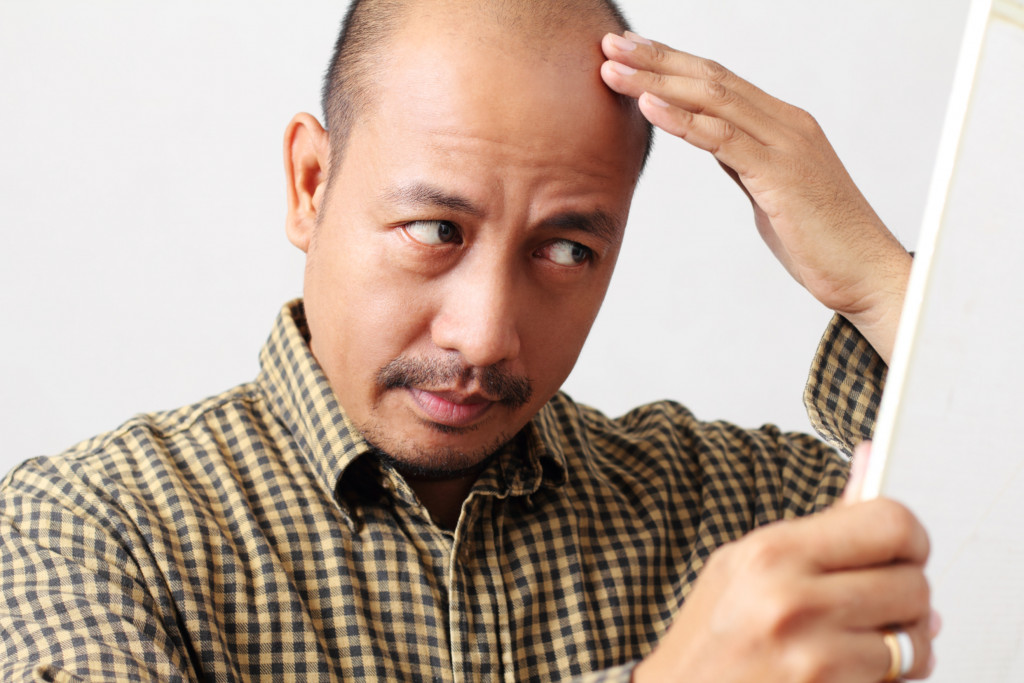The hair cells are the second fastest-growing cells in the body that grows half an inch per month. An average person has around 120,0000 hairs on the scalp, where each one requires nourishment to grow. But since the hair isn’t a vital tissue or organ, the body won’t prioritize its nutritional requirements. With its expendable nature, nutrient deficiency will manifest through hair loss.
Hair fall is an embarrassing condition that affects millions of individuals and makes them insecure about their appearance. These people resort to different techniques to reverse the effects of hair loss. To prevent this, many hair loss victims use hair fall control shampoo and other anti-hair loss products that reduce hair fall while promoting hair growth.
While genetics plays a critical role in hair health and is often the root cause of hair loss and balding, another vital factor in hair growth is the food you eat. Diet and nutrition are the other two major factors that accelerate hair loss. This means the presence or the lack of specific nutrients in the body can negatively affect your hair growth. Continue reading to know about the dieting mistakes that lead to hair loss.
Micronutrient deficiencies
Our hair follicles are the most metabolically active parts of our body. Experts say hair growth will suffer if you have micronutrient deficiency or receive small amounts of calories and protein.
Hair loss happens if your body doesn’t get the right amount of minerals, vitamins, and other nutrients required in your diet. For example, insufficient amounts of protein in the diet ruin healthy hair and prevent the body from producing new hair follicles. Nutritional deficiencies also lead to extreme cases of hair loss, such as telogen effluvium and androgenic alopecia.
If you want to boost hair growth, make sure to take sufficient amounts of iron, vitamin D, zinc, copper, biotin, vitamin B12, folate, and riboflavin.
Supplements
Certain supplements help the hair grow and stay healthy at a faster rate. But taking other types of supplements can cause adverse side effects to hair growth.
If you’re not suffering from any nutrient deficiency, ingesting high doses of specific nutritional supplements affects hair growth patterns. These supplements include selenium, vitamin A, and vitamin E. For instance, taking vitamin A supplements when you already have sufficient amounts of vitamin A in the body can overwhelm the liver, the main repository for vitamin A.\

If the liver cannot process overwhelming amounts of vitamin A, the excess nutrients will proceed to blood circulation. But since maintaining healthy levels of vitamin A is vital for the hair follicles, any excess amount will lead to hair loss.
The same goes for taking excess nutrients on your daily diet. For example, paradise nuts are rich in selenium, and eating them in large amounts can lead to serious health issues and immediate hair loss. Many of us aren’t aware that most supplements that promote hair growth consist of high doses of nutrients that accelerate hair loss once taken frequently.
Likewise, herbal supplements also cause hair loss when taken in high dosages. Thus, it’s important to consult a medical professional before taking any supplements.
Weight loss
While weight loss isn’t always a potential cause of poor hair growth, it doesn’t mean you won’t experience hair loss by losing weight. Losing a large amount of weight or sudden weight drop leads to hair loss. Dieting takes a serious commitment that causes extreme exhaustion, stress, and nutritional deficiency. This also happens to women who gain weight because of menopause or aging, which forces them to go on a diet. A combination of these factors can lead to hair thinning.
Hair loss often happens during extreme situations. For instance, obese people undergo bariatric surgery, altering their digestive system to lose weight. Diet fanatics undergo an extreme diet fad that eliminates certain nutrients. In the case of bariatric surgery, nutrient deficiency occurs when the patient experiences stress because of the surgery and the immediate weight loss that comes after it.
If hair loss occurs within three months after the surgery, it’s likely related to the surgery itself. Nutrient deficiencies may also develop caused by surgery-related malabsorption. Thus, anyone who plans to undergo bariatric surgery or restrictive diet plans should consider taking micronutrient supplements. These prevent hair loss and other serious complications to the body.
If you’re keen to lose weight, consult a dietitian to find the most appropriate diet plan for your situation without compromising your nutrient intake.
Healthy hair is one of the physical manifestations of overall good health. A balanced diet will benefit not only hair growth but also the entire body. The right dose of nutrients and proper diet will allow you to regain confidence and restore that beautiful crowning glory.

